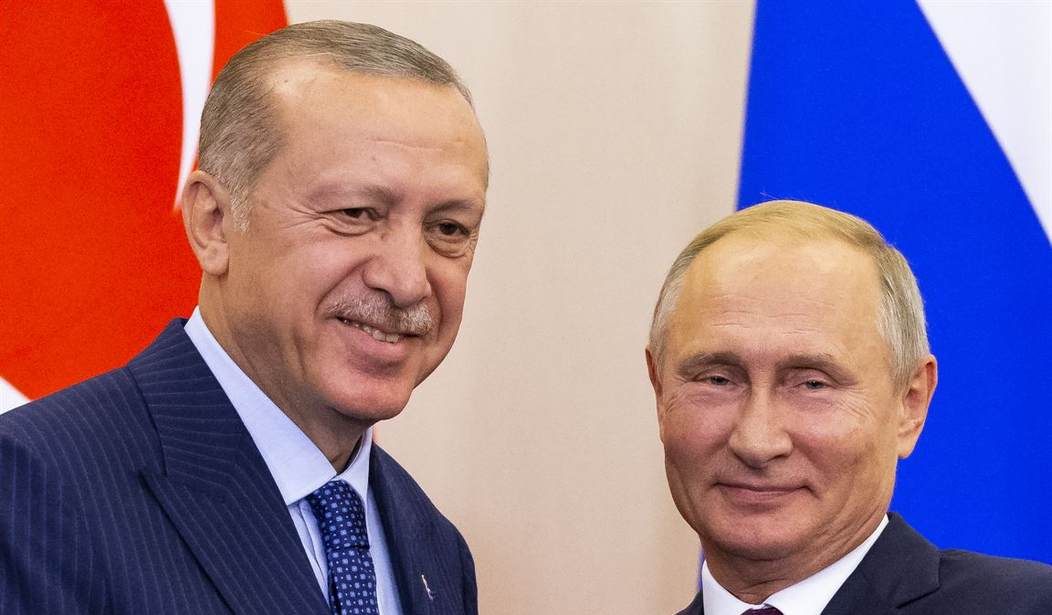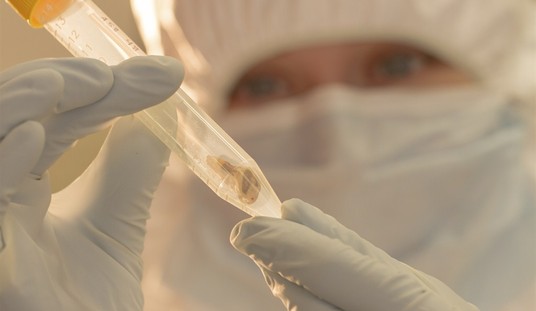Perhaps Europe learned a lesson after all — and maybe so did Vladimir Putin, although far too late for both. Faced with crippling economic sanctions and a war that has united the West rather than divided it, the erstwhile Russian tsar at first tried cutting off gas supplies to Germany and the EU to get them to knuckle under.
Now Putin proposes to turn the spigots back on, but his market has suddenly disappeared — likely, for good:
Russian President Vladimir Putin said Wednesday that Moscow is ready to resume gas supplies to Europe via a link of the Germany-bound Nord Stream 2 pipeline under the Baltic Sea — an offer quickly rejected by Berlin.
German officials have said Russia halted supplies through the Nord Stream 1 as a political gambit and questioned why supplies through Nord Stream 2 would be any more reliable. …
German government spokeswoman Christiane Hoffmann noted that Putin had already made similar comments.
“Independently of the possible sabotage of the two pipelines, we have seen that Russia is no longer a reliable energy supplier, and that even before the damage to Nord Stream 1 there was no longer any gas flowing,” Hoffmann told reporters in Berlin.
“So for us, there is no reason to believe that that would change,” she added.
Take it from this old hand at customer service: This what happens when you screw around with your customer base long enough. Putin had developed economic and political leverage over Europe generally and Germany in particular by hooking them on cheap Russian natural gas. Putin had hoped that addiction would be enough to either force the West into allowing Putin to exert dominance over the former Soviet republics or even split the West and NATO when Putin exercised that dominance.
That strategy was always a long shot, but Putin played his low-odds hand badly by making it too overt. When Europe rallied to Ukraine’s side, spooked by the implication of allowing a territorial war of aggression to succeed, Putin responded by restricting and then cutting off energy supplies to Europe. All that did, however, is to finally awaken the EU to the dangers of that addiction — and find other sources of energy to replace Russian imports.
Now Putin wants to try to recover an export market he’s already destroyed. Hoffman had two words for that effort:
As for Putin’s comments, she said: “Nice try.”
In other words, pound sand. That’s a welcome development in Europe, and Hoffman’s brave to stick to this position while her country is about to struggle through a difficult winter.
It’s also long overdue. Twenty years of warnings from US administrations of both parties didn’t teach them anything about reliance on cheap Russian energy imports. Even Putin’s 2008 attack on Georgia and 2014’s partial invasion/occupation of Ukraine didn’t break their addiction or get European leaders to face the risks of their addiction. Putin’s cold-turkey detox appears to have accomplished it instead, and with it the elimination of a massively profitable market for its only real significant export — perhaps forever.
Putin’s attempt to reopen the market is a reflection of desperation. He still wants to split NATO, using Germany in particular, to alleviate the consequences of Putin’s incredibly stupid invasion and genocidal campaign in Ukraine. Failing that, he might be signaling an opening for negotiating an end to hostilities with the one commodity that gives him any leverage at all.
A trip to Turkey also looks like a signal from Putin that he’s ready to talk:
Russian President Vladimir Putin will meet his Turkish counterpart Recep Tayyip Erdoğan in Kazakhstan’s capital Astana on Wednesday on the sidelines of a regional summit, a Turkish official told AFP Tuesday.
Kremlin spokesman Dmitry Peskov said Monday that potential talks between Russia and the West might be discussed during the meeting. The leaders are both attending the Conference on Interaction and Confidence Building Measures in Asia (CICA). …
Turkey’s Foreign Minister Mevlüt Çavuşoğlu on Tuesday called for a cease-fire “as soon as possible,” after the Russian strikes across Ukraine on Monday, which killed at least 19 people and wounded more than 100.
Just a few minutes ago, the Kremlin made that hope public:
#UPDATE Moscow believes Turkish President Recep Tayyip Erdogan will "officially" offer to mediate negotiations with Ukraine at an upcoming meeting with Russian leader Vladimir Putin in Kazakhstan, a Kremlin aide said Wednesday. pic.twitter.com/i9cAwa97FZ
— AFP News Agency (@AFP) October 12, 2022
Nothing would delight Erdogan more than to be the fulcrum of peace talks to end this conflict. It would validate his Moscow-friendly policies, which have angered his NATO partners over the last few years, and make Turkey a lot more relevant in European affairs. Putin likely sees Erdogan as his only fair arbiter in the region, at least the only one with any draw in Brussels and Washington DC.
Putin may be looking to quit before his military completely collapses, especially since his “escalate to de-escalate” strategy has also failed to change the parameters of his pending catastrophe. That would be good news, but only if it results in ironclad security guarantees for Ukraine — and an end to Europe’s energy-import addiction from Putin’s regime.








Join the conversation as a VIP Member